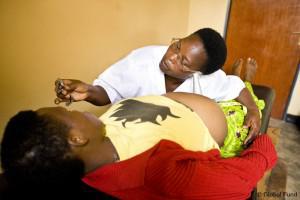Quarter of pregnancies globally may end in abortion


Released at the Women Deliver Conference in Copenhagen, the report uses abortion data from 184 countries to mathematically model abortion rates globally and by region. Co-authored by the World Health Organisation (WHO) and the US reproductive health non-profit the Guttmacher Institute, the report found that while abortion rates have fallen significantly in the developed world between 1990 and 2014, these rates remain largely unchanged in the developing world.
The research estimates that about 56 million pregnancies are terminated each year with about 88 percent of these terminations occurring in the developing world.
According to Guttmacher Institute Principal Research Scientist Dr Gilda Sedgh, the findings mark a shift away from what have historically been higher abortion rates in developed countries.
[quote float= right]Whether or not abortion was legal in countries seemed to have no substantial impact on the number of abortions performed in the country
Whether or not abortion was legal in countries seemed to have no substantial impact on the number of abortions performed in the country, note researchers. However, the unmet contraceptive need remains high in countries in which abortions are illegal.
“A large part of these abortions, about 8 in 10, happen as a result of an unmet need for contraception, which means there is a potential for preventing these abortions,” said Dr Bela Ganatra of the WHO’s Department of Reproductive Health and Research.
Annually, 6.9 million women in developing countries are treated for complications from unsafe abortion and African women account for almost a quarter of such cases.
The study recommends increasing access to contraception as well as to safe abortion services coupled with comprehensive post-abortion care to reduce complications.
“Whether health systems are weak or strong, whether abortion is legal or not, whatever the contraceptive prevalence rate is, women need to have access to safe abortion care,” said Guttmacher Institute President and CEO Dr Ann Starrs.
The research was also published in the medical journal The Lancet earlier this month. – Health-e News.
An edited version of this story was also published on Health24.com
Author
Republish this article
This work is licensed under a Creative Commons Attribution-NoDerivatives 4.0 International License.
Unless otherwise noted, you can republish our articles for free under a Creative Commons license. Here’s what you need to know:
You have to credit Health-e News. In the byline, we prefer “Author Name, Publication.” At the top of the text of your story, include a line that reads: “This story was originally published by Health-e News.” You must link the word “Health-e News” to the original URL of the story.
You must include all of the links from our story, including our newsletter sign up link.
If you use canonical metadata, please use the Health-e News URL. For more information about canonical metadata, click here.
You can’t edit our material, except to reflect relative changes in time, location and editorial style. (For example, “yesterday” can be changed to “last week”)
You have no rights to sell, license, syndicate, or otherwise represent yourself as the authorized owner of our material to any third parties. This means that you cannot actively publish or submit our work for syndication to third party platforms or apps like Apple News or Google News. Health-e News understands that publishers cannot fully control when certain third parties automatically summarise or crawl content from publishers’ own sites.
You can’t republish our material wholesale, or automatically; you need to select stories to be republished individually.
If you share republished stories on social media, we’d appreciate being tagged in your posts. You can find us on Twitter @HealthENews, Instagram @healthenews, and Facebook Health-e News Service.
You can grab HTML code for our stories easily. Click on the Creative Commons logo on our stories. You’ll find it with the other share buttons.
If you have any other questions, contact info@health-e.org.za.
Quarter of pregnancies globally may end in abortion
by kyla, Health-e News
May 20, 2016



